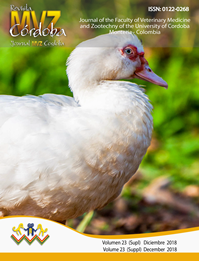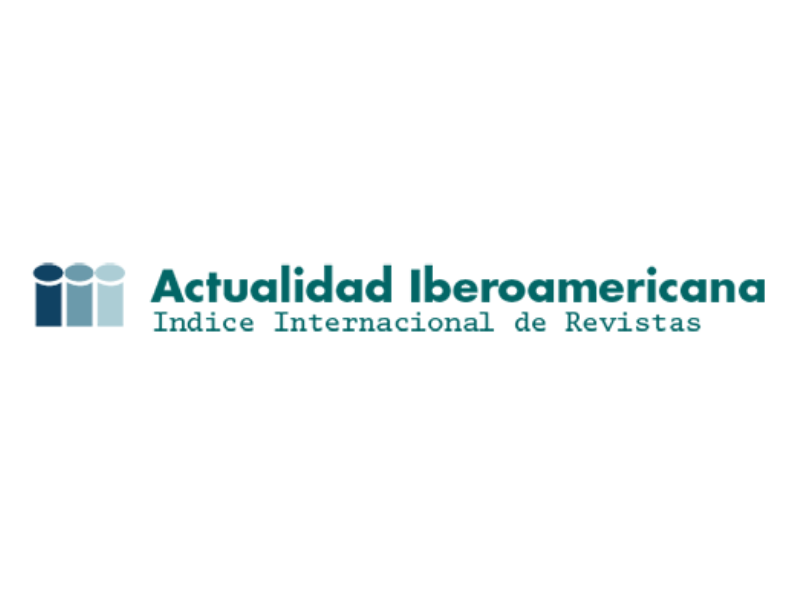Knowledge level, attitudes and preventive practices towards Zika
Nivel de conocimientos y su relación con las actitudes y prácticas preventivas del Zika
Show authors biography
Objective. This correlational descriptive cross-sectional study was conducted to determine the level of knowledge and its relationship with attitudes and Zika’s preventive practices in the district of Chepen, La Libertad, Peru, 2017. Materials and methods. A questionnaire on knowledge, attitudes and preventive practices was applied to a sample of 284 adult persons, with an average age of 37 years. Results. The results showed that the level of general knowledge about zika was regular at 79% and good at 21%. As for the most common zika’s preventive practices carried out by the inhabitants of Chepén, 83% mentioned that they frequently washed their water tanks, 77% used a brush and detergent to wash the tanks with water and 75% placed a lid over the tanks with water. Conclusions. There is a significant relationship between level of knowledge and sika’s preventive practices (p<0.05).In addition, regular knowledge is a risk factor (OR: 5, CI: 2.073-10.063) for inadequate zika’s preventive practice; people with regular knowledge are 5 times more likely to have inadequate preventive practices. However, the level of knowledge does not have a significant relationship with attitudes towards the prevention of zika (p>0.05).
Article visits 2215 | PDF visits
Downloads
- Organización Mundial de la Salud. Enfermedad por el virus del zika. [en línea]. OMS; 2016 [Consultado el 15 de junio del 2017]. URL Disponible en: http://www.who.int/mediacentre/factsheets/zika/es/
- Rivera-Garcia O. Aedes aegypti, virus dengue, chinkugunia, zika y el cambio climático. Máxima alerta médica y oficial. Rev Electrón Vet. 2014; 15(10):1-10
- Organización Mundial de la Salud. Preguntas y respuestas sobre el virus del zika y sus complicaciones. [en línea] OMS; 2017 [Consultado el 15 de julio del 2017]. URL Disponible en: http://www.who.int/features/qa/zika/es/.
- Alvis-Guzmán N, Zakzuk-Sierra J, Vargas-Moranth R, Alcocer-Olaciregui A y Parra-Padilla D. Dengue, Chikungu-a and Zika in Colombia 2015-2016. Rev MVZ Cordoba. 2017; 22(Supl):5994-6003. https://doi.org/10.21897/rmvz.1069
- Samuel G, DiBartolo-Cordovano R, Taj I, Merriam A, Lopez J, Torres C, Lantigua R, Morse S, Chang B, Gyamfi-Bannerman C and Thakur K. A survey of the knowledge, attitudes and practices on Zika virus in New York City. BMC Public Health (2018) 18:98 https://doi.org/10.1186/s12889-017-4991-3
- Kindhauser M, Allen T, Frank V, Shankar R Santhanaa, Dyea C. Zika: the origin and spread of a mosquito-borne virus. Bull World Health Organ. 2016; 94(9):675–686C. https://doi.org/10.2471/BLT.16.171082
- [Consultado agosto del 2017]. URL Disponible en http://apps.who.int/iris/bitstream/handle/10665/254747/zikasitrep10Mar17-spa.pdf;jsessionid=826D185B0CDE205EBCE689FF1EBF0932?sequence=1
- Betancourt-Trejos ML, Narváez-Maldonado CF, Ortíz-Erazo WF, Arias-Guzmán JS, Gil-Restrepo AF, Sánchez-Rueda MA, et al. Healthcare students and workers' knowledge about Zika and its association with microcephaly in two cities of Colombia. Travel Med Infect Dis. 2016; 14(3):283-285. DOI: 10.1016/j.tmaid.2016.03.017.
- Organización Panamericana de la Salud / Organización Mundial de la Salud. Zika cases and congenital syndrome associated with Zika virus reported by countries and territories in the Americas, 2015 – 2016. [en línea ] OPM; 2017.[Consultado junio del 2018] URL Disponible en: http://www.paho.org/hq/index.php?option=com_
- Ministerio de Salud. Plan Nacional de Preparación y Respuesta frente a la Enfermedad por el Virus Zika. Perú. [en línea] 2016, [Consultado agosto del 2017]. URL Disponible en: http://www.who.int/features/qa/zika/es/.
- Ministerio de Salud. Mapa Zika por distritos. [En línea] [Consultado octubre del 2017]. Ministerio de Salud: Perú; 2017. URL Disponible en: http://www.dge.gob.pe/portal/docs/vigilancia/sala/2017/SE15/zika.pdf
- Ministerio de Salud. Casos de Zika- Perú 2017 y 2017. [En línea] [Consultado octubre del 2017]. Ministerio de Salud: Perú; 2017. URL Disponible en: http://www.dge.gob.pe/portal/docs/vigilancia/sala/2017/SE22/zika.pdf
- Sabogal-Roman JA, Murillo-García DR, Yepes-Echeverri MC, Restrepo-Mejia JD, Granados-Álvarez S, Paniz-Mondolfi AE, et al. Healthcare students and workers' knowledge about transmission, epidemiology and symptoms of Zika fever in four cities of Colombia. Travel Med Infect Dis. 2016; 14(1):52-54. DOI: 10.1016/j.tmaid.2015.12.003.
- Behar D. Introducción a la Metodología de la Investigación. Colombia: Ediciones Shalom; 2008
- Hernández R, Fernández C y Baptista P. Metodología de la Investigación. México: McGraw-Hill Interamericana; 2010.
- Naresth M. Investigación de Mercado 4ta. edición México: Ed. Pearson Prentice Hall; 2014.
- Casta-eda O, Segura O, Ramirez A, Conocimientos, actitudes y prácticas comunitarias en un brote de Dengue en un municipio de Colombia. Revista de Salud. 2011; 13(3):514-527
- Gonzáles-Morales A, Ibarra-Sala A, Nivel de conocimientos, actitudes y prácticas sobre la prevención del mosquito Aedes Aegypti en comunidades del municipio Diez de Octubre, La Habana. Rev Cubana Hig Epidemiol. 2011; 49(2):247-259.
- Delcid-Morazàn A, Barcan-Batchvaroff M, González C, Barahona- Andrade D. Conocimientos, actitudes y prácticas sobre las arbovirosis. Archivos de Medicina. 2017; 13:1-5 .
- Do not use your browser's 'BACK' button.
























